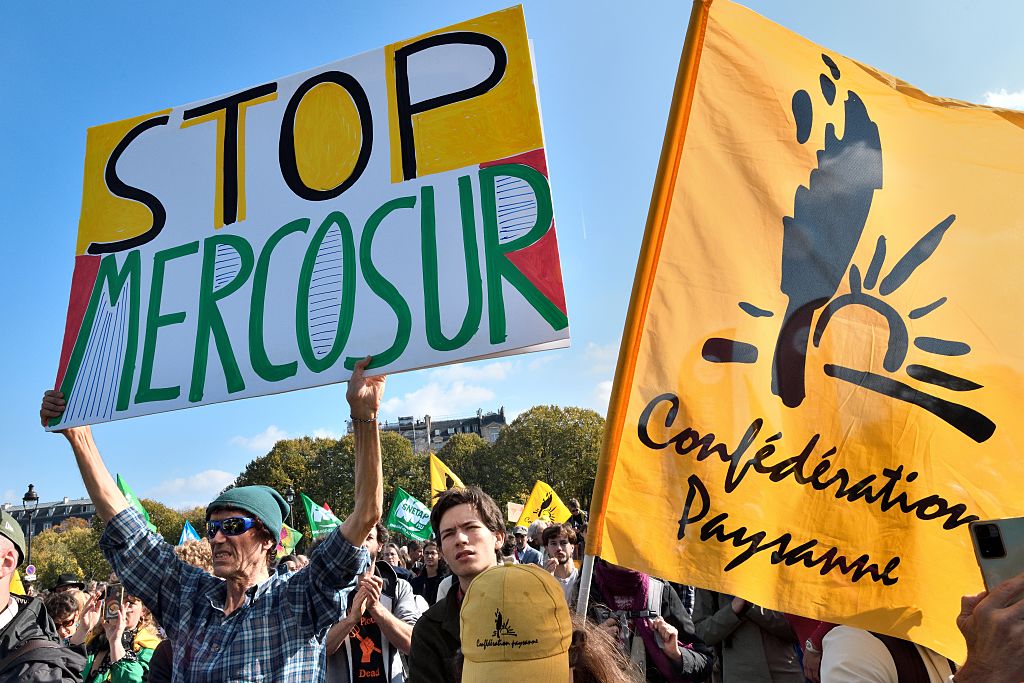MEPs move to challenge EU-Mercosur trade deal at top court
Left-wing MEPs will table a motion asking the EU Court of Justice to rule on whether the deal complies with EU law

A group of MEPs is taking the first step to challenge the EU’s trade deal with Mercosur at the bloc’s top court – just weeks before the deal’s expected signature in Brazil.
Green MEPs Majdouline Sbaï and Saskia Bricmont – who set up a cross-party group opposing the pact – will next week table a motion for a resolution, obtained by Euractiv, to be voted on at the Parliament’s plenary session of 24 November.
The text, based on a first draft penned by The Left, calls on the European Court of Justice to issue a legal opinion on whether the deal complies with EU treaties.
Sbaï said on Monday that the working group she started with Bricmont a year ago proved that different ideologies and nationalities can work together when Europe’s food safety is at stake.
“This vote is not a ‘for or against’ the EU-Mercosur agreement: the objective is to verify if it holds from a legal perspective,” she added.
The European Commission and Mercosur countries – Brazil, Argentina, Paraguay, and Uruguay – wrapped up the agreement in December 2024 after more than 25 years of talks. The Commission launched the ratification process in September and plans to sign the deal at a summit in Brazil in December.
The Parliament, in turn, still needs to give its green light, likely early next year.
The resolution warns that a clause designed to protect agreed market access – the “rebalancing mechanism” – could limit the EU’s ability to introduce new environmental or health rules.
It also argues that the Commission shouldn’t bypass national parliaments, recalling that EU countries agreed in 2018 that trade agreements still under negotiation, including EU-Mercosur, must be treated as “mixed” – meaning they need approval from both EU institutions and member states.
If the resolution passes later this month and the court agrees to hear the case, Parliament’s consent vote would be delayed until the legal opinion is issued – a process that could drag on for years.
But whether the motion can pass remains uncertain.
Though it originates from the left, it is likely to draw support from anti-Mercosur members of Renew, and potentially from socialist and centre-right MEPs representing countries traditionally opposed to the deal – including France, Poland, Ireland, and Belgium’s Walloon region. The far-right Patriots for Europe group, the Parliament’s third largest, may also back the motion given its strong opposition to Mercosur.
Mercosur trade deal prompts French EPP rebellion against Commission
STRASBOURG, France – Four French centre-right lawmakers, including senior member François-Xavier Bellamy, sided with far-right…
3 minutes

Meanwhile, lawmakers are also sparring over who should lead work on a new safeguard clause for the EU-Mercosur deal, unveiled by the Commission in September. The measure aims to calm fears over farm imports hitting EU producers. A decision on that by the Conference of Presidents is also due by the end of November.
(adm, aw)
CORRECTION: The motion for a resolution is set to be tabled next week.







